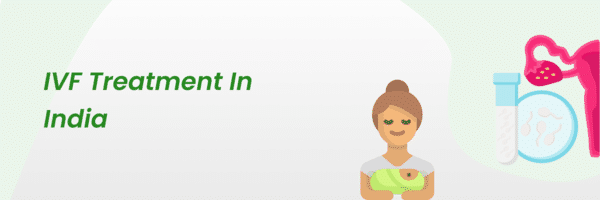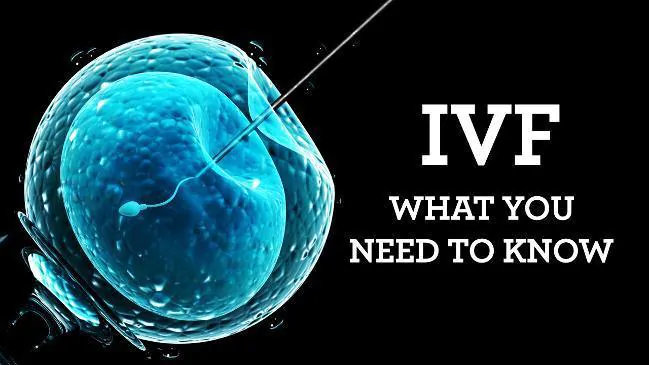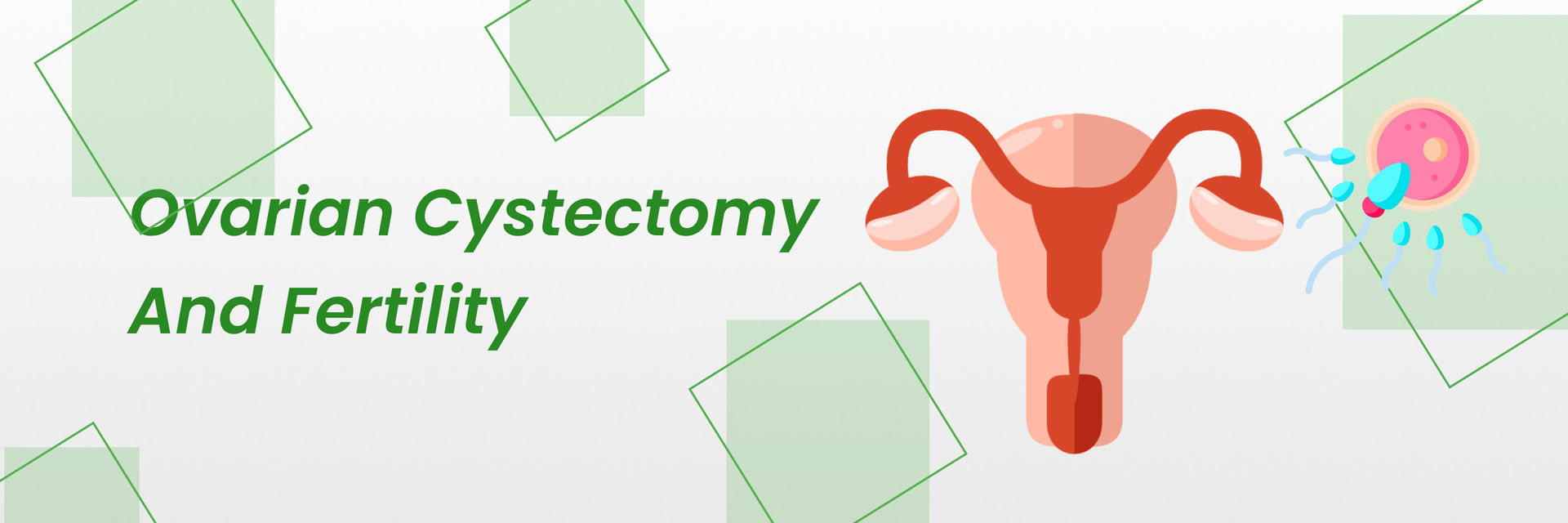If you are wondering what is test tube baby and IVF, whether both the terms are related, let us try to understand them in detail. Test tube baby is a term that refers to a child that is conceived outside the women’s body by a scientific process known as In-Vitro fertilization or IVF treatment. This entire process is done in a laboratory. In this process the eggs are taken from the mother’s ovary and fertilised by the sperms from the father.
The fertilised egg is cultured for 2–6 days and allowed to divided 2-4 times inside a test tube (hence the name test tube baby) These eggs are then returned back to the mother’s uterus where it can be developed normally, this is done with the intention to establish a successful pregnancy.
Test tube baby procedure has greatly helped women having infertility problems that are untreatable to give birth to healthy babies.
The test tube baby procedure was made possible by scientist Robert Edwards and gynecologist Patrick Steptoe in 1978 when the first test tube baby, Louise Brown was born in England. In 2010, Robert G. Edwards was conferred the Nobel Prize in Physiology or Medicine for developing the IVF treatment.
Now, IVF treatment has given many couples who are suffering from fertility problems a hope of becoming a parent. Since the first test tube baby in 1978 to recent times there have been millions of children who are born with the help of IVF treatment. Now a days test tube baby process is widely followed through out the world,especially IVF in India is in great demand.
Having a baby is a boon, and the person help you to get this opportunity will be the most important person of your life for sure. So here we have listed few best IVF centres and infertility specialist in India, that will help you to get your child I your arms, when you plan test tube baby treatment in India.
Now let us understand the steps involved in test tube baby process. The steps for test tube baby break in four phases. People planning for IVF treatment should know the test tube baby procedure in depth.
What is test tube baby process ?
Step 1 - Egg stimulation: Patient is given fertility medications to stimulate the production of egg. To increase the success rate of the treatment multiple eggs are needed. Usually it not advisable to rely on single egg for which the doctor gives fertility drug to increase the production of eggs. Depending upon the patient's response medications are advised. There are various protocols for egg stimulation. Egg stimulation is guided by Transvaginal ultrasound to examine ovaries, blood samples and to determine the level of hormones.
Step 2 - Egg Retrieval: Imaging ultra sound is used to retain ovarian follicles with the help of hollow needle. Retrieval of egg is followed with minor surgery Complete procedure takes about half an hour. The follicular fluids are carefully seen by embryologist to trace the proof of available eggs. After the entire procedure eggs are preserved in incubator till insemination.
Step 3 - Culture of Fertilization and Embryo: For insemination male sperm sample is collected. Eggs are mixed with the sperms and stored in laboratory. If there are chances of low probability of fertilization, ICSI can be considered. To enable fertilization single sperm is infused in the egg. Fertilized eggs are considered as embryos only after the confirmation by an embryologist.
Step 4 - Transfer of egg and quality of Embryo: Embryo transfer is the quickest method done in overall treatment. Embryo is assessed on the basis of age and quality. Doctor is asked to keep the full history of the patient starting from age to previous treatment, but the end decision is taken by patient itself. Under normal situation, doctor suggests transferring single embryo with blastocyst and rest of them are preserved. Transfer of one high quality embryo decreases the risk of triplets or twins. During transferring, doctor inserts Cather and pushes pre determined embryos in the female uterus. This method is done under guidance of ultra sound. Patient is advised to take rest for 5- 6 hours after it. After this method, pregnancy test is conducted to know the exact situation.
Be aware of these issues before undergoing the test tube baby process (IVF Treatment)
Test tube baby process drains you out physically, financially and emotionally. Also, there is no guarantee that it will be 100 % successful.Some of the best IVF centres in India such as Ivf centres in Mumbai have high success rate which will increase your chances of conceiving. There are chances that it may not work out for you in the end.
The number of cycles required for test tube baby procedure may vary from patient to patient. The success of test tube baby in India depends on many factors such as the degree of infertility, the age of the woman and the quality of the egg and semen.Choosing the right fertility center is very important and luckily the metro cities in India especially the IVF center in Bangalore provides the best IVF and test tube baby treatment with reasonable cost and advanced technology.The process of test tube baby is very unpredictable as some may conceive in the first cycle itself while others may need several cycles to conceive. While there are some women who cannot conceive even after undergoing several test tube baby cycles.
There are different treatment options available depending on your fertility. To get more information about the treatment in brief you can watch test baby procedure video in hindi or other languages based on your preference.You can opt for mini-test tube baby process if your fertility issues are not very severe. Lower doses of fertility drugs are used during this procedure due to which even the cost of the treatment decreases. If ovulation is not a problem then you may be eligible for a natural cycle wherein no fertility drugs are involved.Test tube baby processes can be complex and should be done by experienced doctors. Ivf centres in Delhi have some of the best fertility surgeons who provide this treatment with sincerity and compassion and also Delhi are emerging ad one of the best cities in IVF treatment
Having a clear idea about the test tube baby price while going for this treatment will help you set the budget for your treatment and cause you less anxiety.Also, it will avoid any misunderstanding with the clinic regarding the cost of test tube baby procedure.If you are looking out for IVF treatment at an affordable price then you can visit the best Ivf centers in Chennai provides excellent treatment which is at par with international standards at an economic cost
You have to be very patient during the procedure of test tube baby as only about 35 – 40% people conceiving in the first cycle itself. Age plays a very crucial role regarding the number of cycles you may need. Women in their forties may need multiple cycles to conceive.
Most important is the understanding between partners regarding the process of test tube baby.As this is a time-consuming treatment and you need to decide for how long you would persist with the treatment.Setting a definite goal will help maintain your relationship and not cause unnecessary tension.
It is necessary that you have a detailed information about the test tube baby procedure step by step and also the cost of the treatment before going for the treatment.You can also refer to the test tube baby images and videos given on the page to get a better idea.If you want any added information then visit such as test tube baby Wikipedia page.
Below are some of the common FAQ's regarding test tube baby process
Who may not benefit from test tube baby treatment?
As egg production slows down as women starts approaching the age of 40, this even reduces the changes of getting pregnant with IVF. If you have crossed your age of 35yrs. then you can consider donor eggs. This would help you achieve the pregnancy rates all women have at all ages however there is greater risk of miscarriage.
How many IVF cycles are required for test tube baby process to be a success?
Usually about one third of the patients experience live birth after the first cycle. For women who undergo about 3 cycles the chances increase up to 70% to 75%. However, the success rate depends on lot of other factors as well.
What is test tube baby treatment budget ? what are the payment options you can have to afford the treatment ?
The average cost for test tube baby in India would be around Rs. 200000 to Rs. 400000. However, there are some government recognized hospitals like AIIMS and few others charge as low as Rs. 70000 to Rs. 85000 Other than this, a few private clinics charge on per cycle basis. Whereas some offering multiple IVF cycle packages. Always discuss with the clinic, the payment options you can get before starting the treatment.
What are the test tube baby treatment deciding factors ?
Is test tube baby procedure painful?
Sometimes women find implantation to be painful.To conduct the implantation without pain,they are given pain killer tablets and injections.
What are the symptoms after the treatment ?
Usually IVF patients experience irregular periods or spotting after two weeks of implantation. As the embryo moves into the uterus it causes bleeding and pain. This shows pregnancy but it is not confirmed. Changes in the breast are the best symptoms for IVF pregnancy. Visit the best IVF centers in India for treatment to ensure greater success rates.
When is IVF required?
- Problem with sperm: when male partner sperm is not in adequate quantity then IVF is required with ICSI, and IVF procedure is helpful to them, who need their sperm to be penetrated in the egg for fertilization.
- Problem with ovulation: for releasing the healthy eggs IVF is required, when ovary is not working properly.
- Problems with Fallopian tube: through uterus, egg travels in the fallopian tube, in some cases if the fallopian tubes gets blocked due to any disease, then the only option left with the couple is IVF.
- Uterine problems: ART can be used to overcome uterine problems, and problems related to conceiving.
- Cervix problem: sexual intercourse can be affected if the cervix response abnormally. In this case IUI (Intra-uterine Insemination) or IVF is required for a mother to get pregnant.
- Genetic Testing: suppose a partner is suffering from certain disease, and if they have fear that the disease can be passed to the new born baby, then IVF technique is needed.
- Death of partner : IVF treatment is very helpful in the case if the partner is not alive, and the couple has stored its sperm or egg before.
- Surrogacy : surrogacy means, if the female partner is unable to conceive a child, then the baby is carried in the womb of another lady. IVF is useful so that sperm or egg produced by another partner can be transferred to surrogate uterus.
- Egg freezing: in case of egg freezing egg stimulation and egg retrieval is needed. Frozen eggs are kept at cool place and is transferred to embryo after couple's decision for pregnancy.
- Same sex : IVF is used for people with same sex also. Whether it is lesbian, gay couples. It is possible only if sperm of third person of opposite sex is taken.
- Single parent : people those who don't want to get married; still want a baby, being single parent IVF can be useful to them, by donating the egg or sperm.
Success Rate
Patient should understand the chances of conceiving and this depends upon various factors, from which the most important are:
Patient's age: The important role in conceiving is age. As your age increases or as you grow old your chances of getting pregnant lowers down.
- Whereas, age factor is more in case of female as compared to males.
- In order to know the effects of age on pregnancy through IVF, refer the following chart that is based on survey records till 2010
- 32.2% for women aged under 35
- 27.7% for women aged between 35–37
- 20.8% for women aged between 38–39
- 13.6% for women aged between 40–42
- 5.0% for women aged between 43–44
- 1.9% for women aged 45 and over
There is an inverse relation between success rate and the age. Moreover, you can understand by this chart, that how much are the chance of success when you go for its treatment.
Some other factors:
- Your level of fitness, previous medical history, presence of any complications, lifestyle, etc. Keeping all this condition in mind you must contact your fertility specialist to undergo some of the tests and assessment, so that your doctor can understand the situation.
- Expertise of your clinic or hospital.
- As you cannot change your age or past history but you can make your chances positive of being pregnant by getting nothing but the best treatment under the hands of IVF experts.
Advanced techniques which help in reproduction
- Intrauterine Insemination (IUI): During this treatment, the sperm is directly placed in the woman’s uterus using a long narrow tube. It is mostly used in cases where the sperm count is low or has low mobility. It is also used for women who have a defect in the cervix.
- Intracytoplasmic sperm injection (ICSI): ICSI is used in cases of severe male-factor infertility. A single sperm is injected directly into an egg by the embryologist to increase your chance to conceive successfully.
- Donor egg or sperm: Donor eggs are used when the eggs produced by the woman is not healthy enough for fertilization. They are also used by the woman who has her ovaries removed, are a carrier of genetic diseases or has undergone radiation or chemotherapy. Donor sperm is used when the person is unable to produce any sperm or has a very low sperm count. Also, people having genetic diseases prefer using donor sperm.
- Surrogacy: A surrogate is a person who carries the child of another couple in her uterus and gives birth to the child but is not the biological mother of the child. The couple may have to use a surrogate for several reasons such as the woman does not have a uterus, there are some issues with the uterus that makes it hard for her to conceive or has some medical issues that make the pregnancy dangerous for the woman.
- Gamete intrafallopian transfer (GIFT): During this procedure, the sperm and the eggs are combined in the laboratory and are straightaway transferred to your fallopian tubes through a small incision in your abdomen. The eggs are fertilized inside your body and the implantation of the embryo takes place naturally.
- Zygote intrafallopian transfer (ZIFT): During ZIFT procedure, the eggs are mixed with your sperm in the laboratory but the doctor waits for them to fertilize before transferring the embryo to the fallopian tube with the help of a small incision in the abdomen.
- Cytoplasmic transfer: This procedure involves the transfer of the content of a fertile egg from a donor to the infertile egg of the patient along with the sperm.
Risks involved during the process of test tube baby
- Ovarian hyperstimulation syndrome: During the procedure of test tube baby, there is a risk of ovarian hyperstimulation syndrome due to the use of fertility drugs such as human chorionic gonadotropin (HCG). The drugs may cause the ovaries to overreact, due to which they swell up and are painful. The patient experiences bloating, vomiting, nausea, heartburn, loss of appetite, diarrhea and mild abdominal pain which may last for about a week. It is quite rare, but in severe cases, it may cause shortness of breath and rapid weight gain. However, the symptoms may last for several weeks if you have conceived. Do not let this complication scare you as most of the cases are mild and can be easily treated.
- Complications during egg retrieval: During the process of egg retrieval, the doctor uses a hollow needle to collect the eggs which may cause infection, bleeding or damage to the blood vessels, bowel or bladder.
- Ectopic Pregnancy: Ectopic pregnancy occurs if the fertilized egg implants itself outside the uterus in the fallopian tube. This can happen to around 2-5% women who have conceived with the help of test tube baby procedure. As it is not possible for the fertilized eggs to survive outside the uterus, the pregnancy has to be terminated.
- Miscarriage: The chances of miscarriage in women who have conceived by the procedure of test tube baby using fresh embryos is similar to women who have conceived naturally. But the rate of miscarriage increases slightly if frozen embryos are used or if the age of the women is on the higher side.
- Multiple births: It is one of the major complication of test tube baby process as it increases the risk of multiple births. This happens when more than one embryo is transferred to the uterus. Multiple births can cause lots of complications such as miscarriage, obstetrical complications, early labor and low birth weight.
- Early labor and low birth weight: According to the researchers, the process of test tube baby may slightly increase the risk of the baby being born early or having low birth weight.
Disclaimer: *we make no representations, warranties or promises of any kind.






